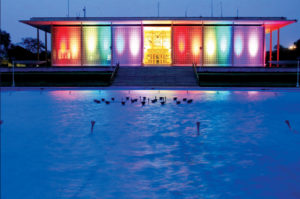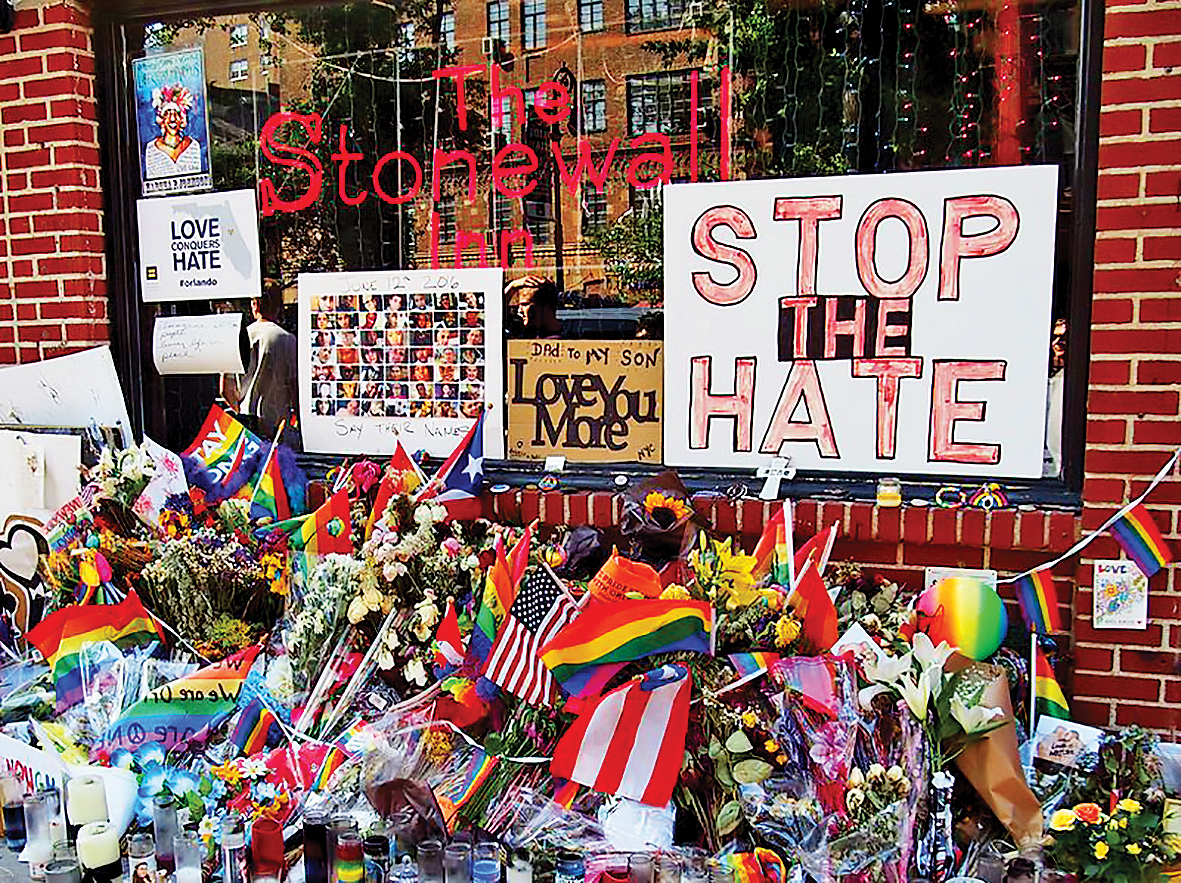June is not just a month for celebrating the gay movement, but also a month to pay tribute to those who lost their lives in the Stonewall riots – a reason not many seem to know about
Every year in June, the Embassy of the United States in the Capital becomes a venue for celebrating the LGBTQIA+ movement. The front wall of the embassy was brightly lit in the colours of the gay pride flag, bearing testimony to the saying, ‘Love is a two-way street.’ It sends out a message of peace and love. Here, the Pride Month takes over everything else and upholds the rights of the community.
The uprising not only gave a fitting reply to the homophobia, but also gave birth to the gay liberation movement (of the late 60s), while subsequently giving way to the modern fight for LGBT rights in the United States.
This year too, June will be a month to celebrate the LGBT community – the struggle they face in coming out and freely living their true identity. The celebrations not only act like a facilitator of smashing homophobia, but also as a tribute to the 1969 Stonewall riots — a series of violent demonstrations by members of the gay community after the police raids on Stonewall Inn, Manhattan, NYC.
First, an establishment which has become more famous for its inclusivity than its magnificence and pomp: The Lalit Hotel in Delhi, which in recent years has become synonymous with a safe space for the community. The hotel has been at the forefront to provide help to the LGBT community.
To commemorate the Stonewall riots, the Kitty Su club in Delhi and other cities will be screening queer movies and documentaries of drag queens. The night will be followed by a pool party and trans empowerment night. For Pride Month is about raising the rainbow flag, partying, parading across the globe and decking up in costumes.
The group has also announced a scholarship by The Keshav Suri Foundation worth Rs 75,000 which will be provided to five trans and gender non-conforming students. These students who will get to study for free at the training arm of the group — The Lalit Suri Hospitality School.
Selected students will get to learn about Food Production and Bakery and pursue this for a year and a half as part of the program. To make the selection process more solid, the group will be organising a pan-India drive where team members will visit the gharanas and NGOs working for trans empowerment, to inform them about this initiative.
Sensitisation is another activity that is part of the month-long calendar of the group. The aim is to create a safe work space and sensitive the workforce. This particular activity is organised by drag queens and trans activists.
At the Kitty Su club, a series of inclusive nights have been planned, and to take it up a notch, an event called MetProm Night will take place on June 22. The idea is to emulate the glitz of Met Gala, a fundraiser party which happens at The Metropolitan Museum of Art in New York and known as the biggest party of the year, in the fashion circuit of the concrete jungle.
Keeping in mind other sections of the society, a North East Night is going to take place on June 19. The group has also announced India’s first inclusive loyalty program for the LGBTQIA+ community.
The celebration is not restricted to private establishments alone, but public too. The American Centre, known for its library, held a screening last week of the Oscar-winning movie Milk, based on the life of American activist, Harvey Milk.
Humsafar Trust, the grand old promoter of LGBTQIA+ rights in the country, is also planning some events, including a movie screening at its office in South Delhi. A working member of the trust, while speaking about an event which was held last week in an embassy in the Capital, says, the event was “traditional in nature and was done by the transgender community.”
Performers’ Consortium, a non-profit, hosted a Pride Night on June 1 and another organisation — Impulse, hosted a pool party called Soaked to kickstart the month.
Sindhura Seelam, partnership associate at Naz Foundation, says that an event will take place during the first week of July to further celebrate Pride Month. “We’re currently planning it, last time we did a karaoke and a DJ night, but this time it will be something different. At our last event, for a lot of people, it was a first-time experience. They were very happy and they found this (the event) quite eventful. The idea is to create a safe space for people from the community,” she adds.
To further understand the idea of a safe space for the community members, Patriot spoke to drag artist, Ikshaku Bezbaroa, known by his stage name Kushboo, on what a safe space means to him.
“I do not know of many safe spaces in Delhi, but I know Divya Dureja is one of the few people who tries to organise safe spaces for women. I think the concept of a safe space is especially important for women and transgender people. If you go to a nightclub or even look at dating app statistics, you will see that these spaces are full of men,” he says.
He thinks that this is because of the “automatic socio-economic privilege they have. I think safe spaces have value because they emphasise on allowing the less privileged sections of the queer society to also access and enjoy being a part of the community.”

Bezbaroa says, “Post the 377 verdict, there’s a lot of work to be done in terms of the rights of the LGBTQIA+ people. It isn’t just about not being criminals, but about being able to enjoy marriage-related rights, custody and parenting rights, inheritance and a lot more.”
For him, the Pride Month is important “because it becomes a space for the assertion of these claims. It is also an occasion for queer people to showcase their artistic imagination and gender identity at a big celebration with other queer folk.”
While Bezbaroa is more informed about the significance of the Pride Month and how it happens every June because of the Stonewall riots, Sameer Kapoor (name changed), 25, accepts that he was not aware of June being the Pride Month. He also says that it was only recently that “I got to know of the Stonewall anniversary and the fact that June is marked for pride globally.”
While more and more events are taking place around the world to commemorate the Stonewall rebellion, for Kapoor, “the celebration, per se, of pride is around the time that Pride March happens in Delhi, which is in November.”
Kapoor says that he will be celebrating the Pride Month, with “a night out with my close gay friends at a gay bar or a drag party — who knows, it could be a date too.”
In recent years there have been some outcry against the Pride Month, so much so, that demands were made to have a straight pride month as well.
When Kapoor was asked whether he has ever faced this, he says, “There have been some people who feel that it is not required. But to such people, I try and point out the persecution that the community goes through and how events like these help us become more visible, if not acceptable.”
A space for Kapoor is “anywhere I can crack a joke around gay sex, without inviting frowns, a place where I can hold the hand of my date, a place where I can probably meet other LGBT individuals would be a safe space for me.”
For Niharika Gupta (name changed), 24, Pride Month means, “being unapologetic of something you were made to feel ashamed of. It is an act of reclamation.” Unlike Kapoor, Gupta never really had to explain to anyone the necessity of the Pride Month, because of “the fact that my circle is very aware and inclusive.”
Gupta says that she never felt the need to go to a safe space like a LGBT friendly cafe, and according to her, they do make a difference, however, to the ‘bourgeoisie.’
She continues, “new Cafes are still alright. What really troubles me is the appropriation of our struggles by the corporates to sell what they wish to. For LGBT spaces to really work, the movement has to align with the broader struggles of the people and steer clear of the commodification of everything envisaged by the community.”





